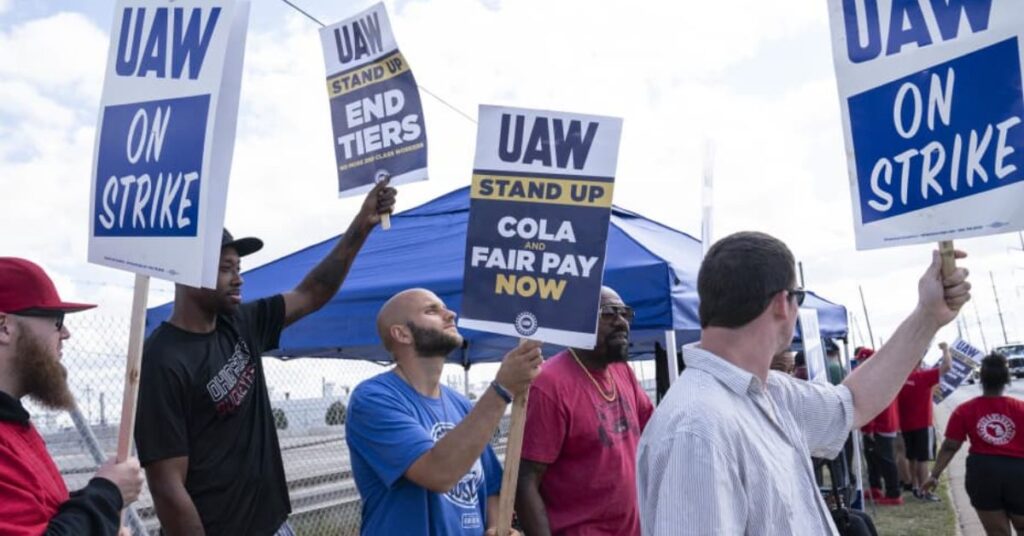The President of the United Auto Workers, Shawn Fain, said on Friday that there might be more strikes at U.S. truck and SUV factories unless the big three Detroit automakers offer better wages and benefits. He believes these companies can afford to give more than what they’re currently offering.
After five weeks of strikes, Fain mentioned that the UAW had received new contract offers from General Motors and Stellantis in the past 24 hours, while Ford made its latest offer over two weeks ago.
Fain confirmed that the Detroit Three had come together on a 23% wage increase offer and made progress on other issues, but he believes there’s more to be gained. GM and Ford claim that with additional cost-of-living increases, their total compensation offers already exceed 30%.

Fain acknowledged that some UAW members want to vote on the current offers, but he encouraged them not to be influenced by fear, uncertainty, doubt, and division sown by the companies.
Fain also mentioned that while he’s warning of the possibility of more strikes, the negotiations are nearing an end, and this is usually the toughest part of a strike.
The stock prices of GM and Ford both went up about 1% before Fain’s speech.
The UAW initially demanded a 40% wage increase, and the strikes began on September 15. Now, over 34,000 union members are on strike against the Detroit Three simultaneously.
Last week, the UAW surprised everyone by striking at Ford’s big Kentucky Truck Plant. Fain described it as a warning to GM and Stellantis.
Ford, which had the highest offer among the three, claims it has reached the limit of what it can pay while remaining competitive.
Fain’s strongest words were directed at Ford and Bill Ford, the company’s chairman and the great-grandson of the founder, Henry Ford. He declared that the era of the UAW and Ford collaborating as a team to compete against other companies is over.
Fain also criticized Ford’s $600 million fourth-quarter dividend, saying it would only be about a dollar an hour raise for all Ford hourly workers over the life of a new contract.
Automakers argue that the union’s demands would significantly increase costs and hinder their electric vehicle plans. Tesla and non-unionized foreign brands like Toyota are not affected by this strike.
Ford mentioned that it is eager to conclude these negotiations, pointing out the financial losses for both workers and the company due to the strike.
Stellantis had no immediate comment.
Bill Ford has warned that the strike is affecting both the automaker and the U.S. economy. An economic consultancy estimated that the total economic losses from the strike have reached $7.7 billion, with the Detroit Three losing $3.45 billion.
Ford Motor has not yet talked about how the electric vehicle battery plants it plans to build in joint ventures with Asian battery makers might fit under the UAW master agreement.
Fain didn’t mention the battery plants on Friday, but the UAW wants automakers to allow the union to organize their workers and significantly raise their wages, which are currently lower than assembly plant pay scales.
